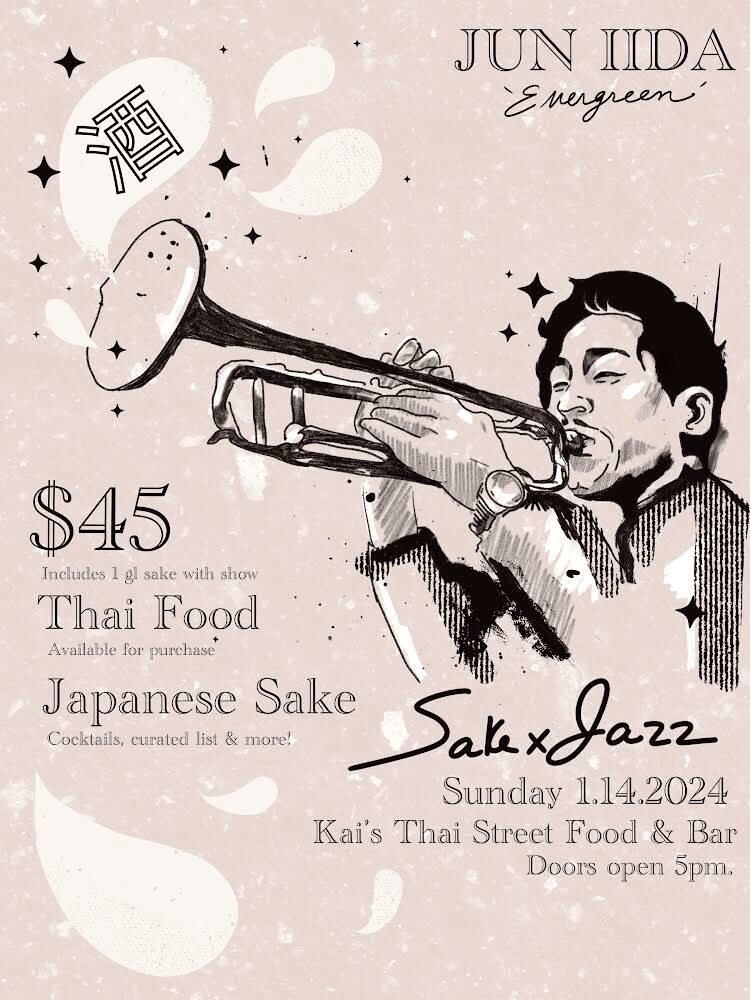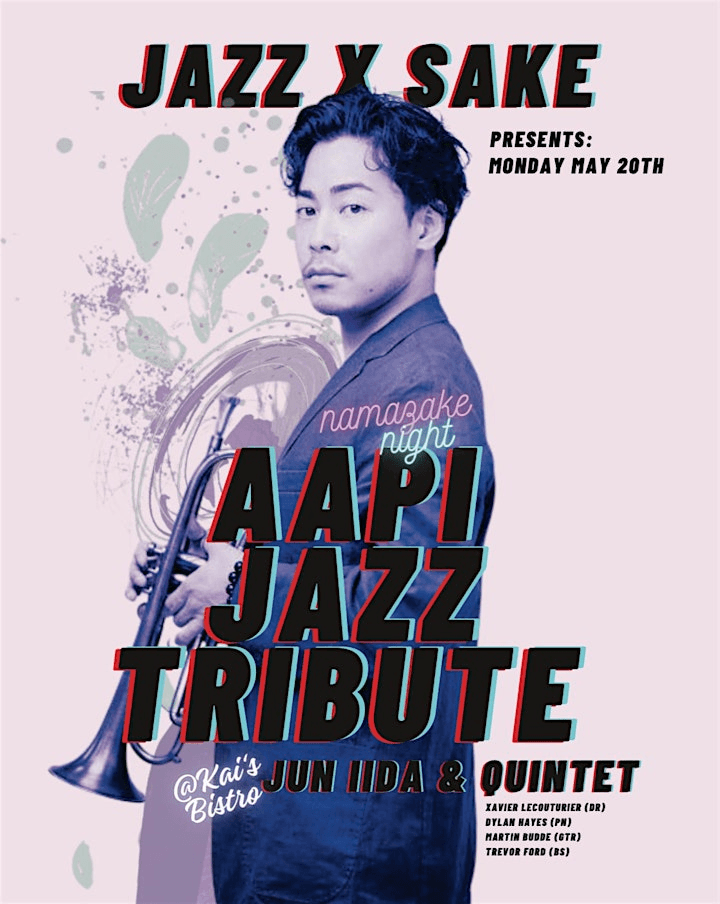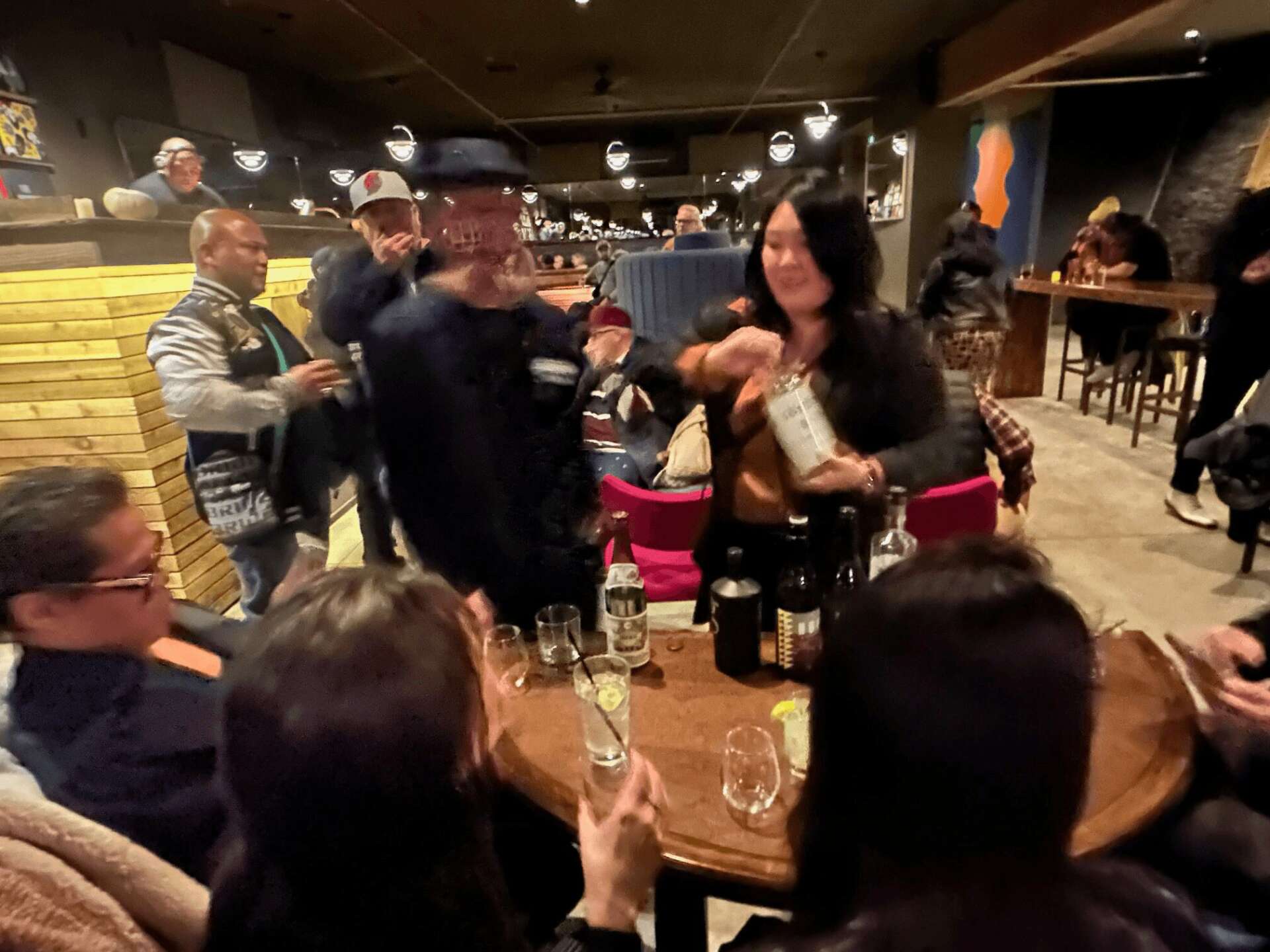Alright – so today we’ve got the honor of introducing you to Quan Liang. We think you’ll enjoy our conversation, we’ve shared it below.
Quan, thanks for taking the time to share your stories with us today It’s always helpful to hear about times when someone’s had to take a risk – how did they think through the decision, why did they take the risk, and what ended up happening. We’d love to hear about a risk you’ve taken.
Times are tough in our industry, and it’s heart-wrenching to watch good, small businesses struggle just to keep their doors open, pouring their all into serving our communities. It’s so tempting to just look out for number one, but I’ve been seeing some pretty inspiring people lately. Other business owners, entrepreneurs, creatives, and industry leaders are stepping up, trying to give back and keep that special spark alive in our cities.
I started out in a small business too —a little mom and pop sushi joint out on the east coast. Back then, as a college student, I didn’t really grasp just how hard the owners were hustling to stay afloat in such an expensive area. But over the seven years I spent with them, growing alongside their business, I learned a thing or two. Risks? They’re just part of the game when you’re building something awesome. And taking a few chances won’t wreck your life. If anything, you might pick up some seriously valuable lessons along the way.
My own journey as an entrepreneur? Well, it’s been all about defying expectations and seeing opportunities where others see burdens. Switching jobs, taking pay cuts, forging those long-term relationships—yeah, they felt risky at the time. But looking back, those short-term sacrifices paid off big time in the long run. I have had amazing support from my husband and close friends, but even they will tell you, at times, I am the first one to put myself down.
I remember when I was a server, and everyone said management would be a nightmare. And when I became a manager, folks warned me I’d end up lonely. Turns out, they were dead wrong. I reached out, made connections with other leaders and business owners, and learned heaps from their experiences. Sure, some said I’d be crazy to even think about diving into my own business someday. But you know what? I’m determined to take that leap, because I’m all about risking a piece of myself to make a positive impact on the world. In the grand scheme of things, whether it’s the biggest or smallest risk, it’s all about me putting myself out there. So, whether it is my craft, my knowledge, or my all, I am willing to take that risk.
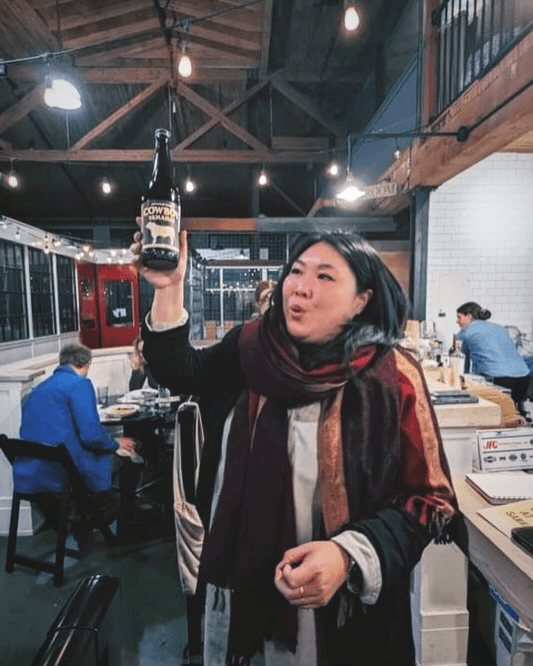
Great, appreciate you sharing that with us. Before we ask you to share more of your insights, can you take a moment to introduce yourself and how you got to where you are today to our readers.
Quan hails originally from Boston, MA, where her journey into the world of sake commenced. Immersed in the culinary and sommelier circles during her tenure at art college, she developed a profound fascination for Japanese culture, cuisine, and libations. With a diverse professional background spanning from Boston to San Francisco, she honed her craft in a spectrum of Japanese and Asian Fusion culinary environments, ranging from casual to haute cuisine.
Upon relocating to Seattle in 2016 with her spouse, Quan seamlessly integrated herself back into the Japanese restaurant landscape. Over the years, she has contributed her expertise to esteemed establishments such as Sushi Kappo Tamura, Kamonegi, Sushi Kashiba, and, most recently, she held a managerial position overseeing the bar program at Hannyatou sake bar.
Complementing her hands-on experience, Quan pursued formal certification from prestigious institutions, including the Sake School of America and the Sake Service Institute, earning distinction as an International Sake Sommelier. Additionally, she holds credentials as a Shochu Advisor and has completed an Introductory Course accredited by the Court of Master Sommeliers. As of recent, she received her WSET Level 3 Sake Certification which has only legitimized her position as a Sake Specialist at a national alcohol distribution company.
Beyond her professional pursuits in the world of sake, Quan remains an avid enthusiast, readily sharing her passion for the brew. When not immersed in the realm of fermentation, she enjoys indulging in hot pot experiences, cherishing moments with her spirited chihuahuas, expressing her creativity through digital artistry, and embarking on spontaneous road trips fueled by a love for music and culinary exploration.
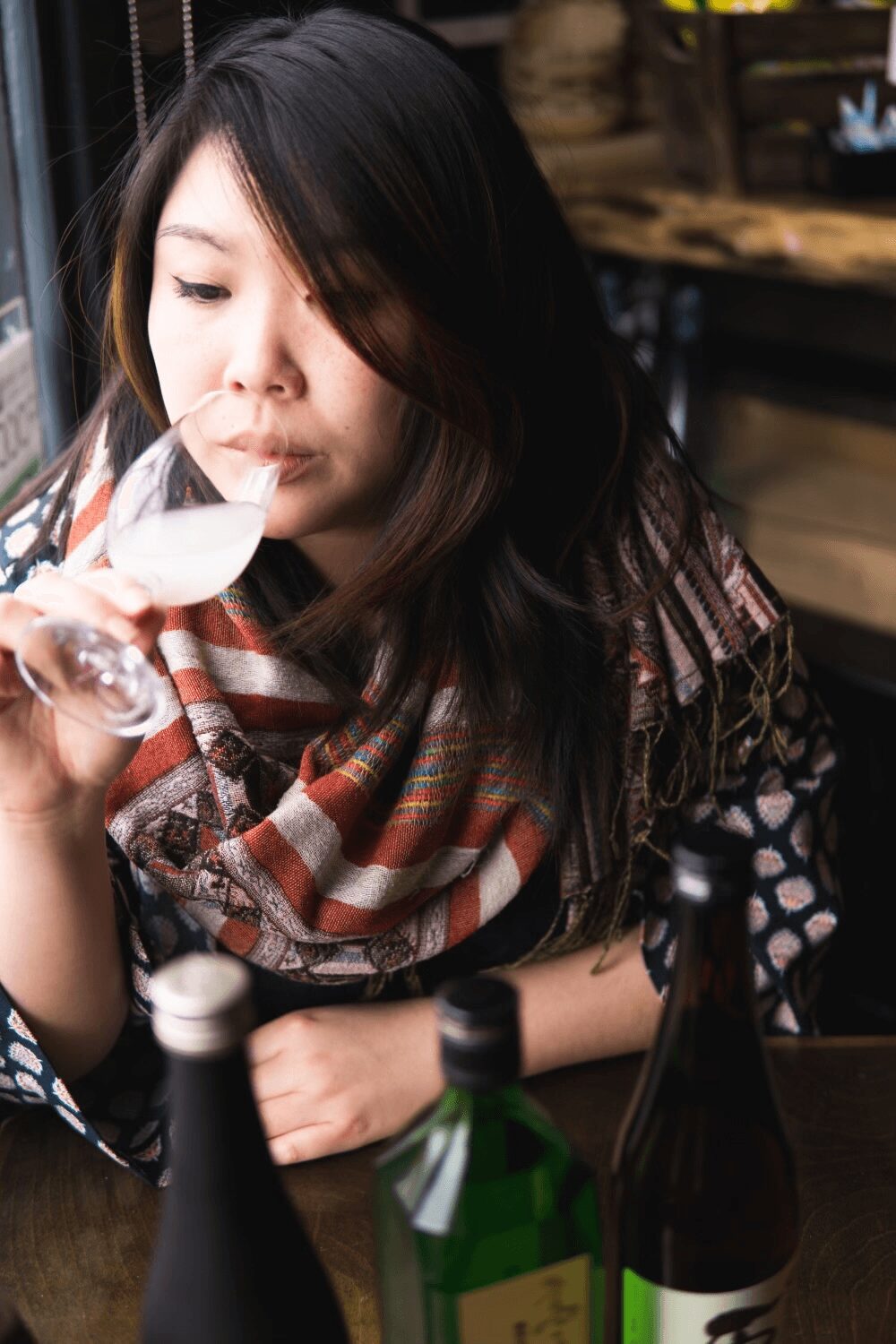
What do you find most rewarding about being a creative?
There’s nothing quite like seeing your ideas take shape before your eyes—it’s the ultimate thrill of being an artist/creative. By day, I’m all about spreading the love for Japanese sake as a Sake Specialist, hopping from one business to another across the state. But to be honest, the corporate grind can sometimes feel like I’m stuck in a rut, especially when you’re bursting with as much passion as I am.
So, I found a way to work hard, and play hard. While I’m clocking in during the day, I save the good stuff for after-hours. That’s when I let loose and let my creative juices flow. I recently teamed up with this old regular of mine from back in my sake bar days—a seriously talented trumpet player. We both dig sake and we’re big into jazz.
And just like that, we’ve brought our dream to life: Sake and Jazz pop-ups at a local Thai restuarant. We curate the themes, design menus, create inventive cocktails, and of course, select the finest sake for the event. It’s like turning nothing into something magical, proving once again that being a creative means you can turn dust into gold.
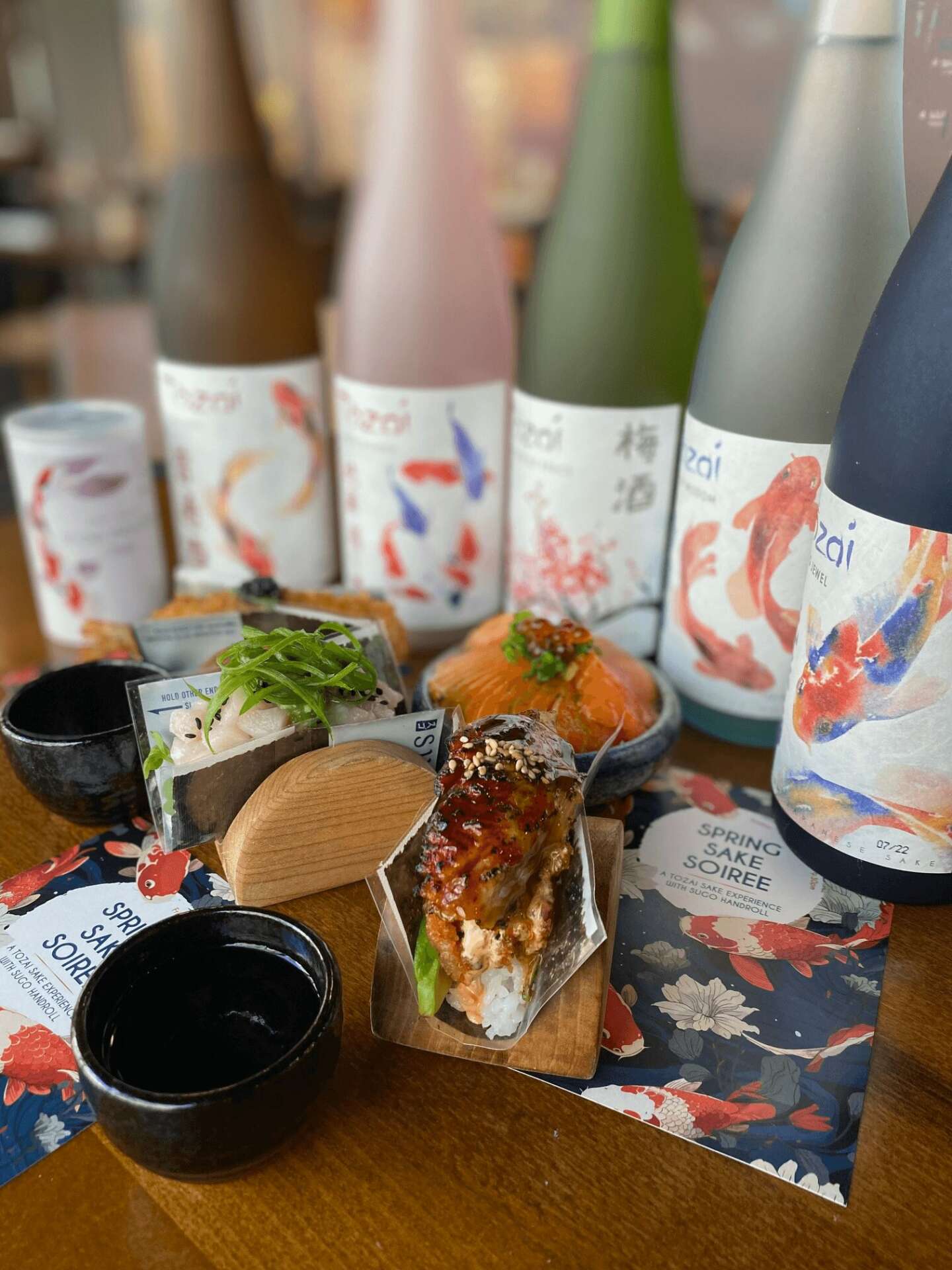
What can society do to ensure an environment that’s helpful to artists and creatives?
Society really needs to step up and give artists and creatives a better shot at making it financially. When I was in art school, they taught us that becoming a famous artist or making a lot of money was one in a million — so don’t get caught up in it. It was almost romantic, this idea of being a struggling artist holed up in a tiny studio. But, that’s just not practical, I like caviar! Artists deserve to live comfortably too, to be able to take care of their families and loved ones without constantly stressing about money.
We need to start teaching artists how to hustle, how to market themselves and their talents. It’s not enough to just be good at what you do; you’ve got to know how to sell it. I don’t believe that you have to fit into some box to be considered an artist either. I can’t count how many times I’ve heard someone say, “Oh, I’m not creative like you,” or assume that because I have a day job, my art must just be a hobby. It’s not that simple.
The beauty of being creative is that we can adapt to anything. We’re resilient, we’re resourceful, and we can inject a little artistry into everything we touch. It’s not about fitting into some mold; it’s about finding your own path and making it work.
Contact Info:
- Instagram: https://www.instagram.com/quanxx/
- Linkedin: https://www.linkedin.com/in/quan-liang-44515764/
